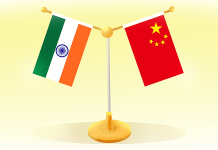With India poised for the next big electoral switch, the Delimitation Debate in South India has picked up steam. It has opened up a space marked as both political and public. The upcoming redrawing of assembly seats based on data from the 2011 Census will be the main topic of discussion.
In This Article:
Sri Lankan states are increasingly worrying about the south, as seen in Tamil Nadu, Kerala, Karnataka and Andhra Pradesh, on how these constituencies would minimize the political representation.
Delimitation: What it Means and Why This Is Controversial
Delimitation means the redrawing of electoral constituencies to take into account demographic changes. Delimited exercise of ensuring free and fair proportionate representation. The delimitation debate in South India heated up due to massive inroads made on population size asymmetries between North and South states.
The overall populations of Uttar Pradesh and Bihar are very high, so more seats will be added to Lok Sabha. On the other hand, decade-long family planning and family descent population control policy-based states of the South might lose their relative representation.
It has raised fears that the dynamic North will be politically sidelined. Even though it accounts for a large share of GDP, tax revenues and human development will be indicators of the nation.
Southern Leaders Have Concerns Over Delimitation
Opposition from around the South has been strong to “retributive system” of population control success, according to some political leaders. Tamil Nadu Chief Minister M.K. Stalin is one of the loudest critics. He is saying the delimitation policy is unfair to South India and could breach the federal fabric of the country.
In Kerala and Karnataka, too, similar expressions have been made by leaders of the Center. It is made from both the ruling and opposition parties that there needs to be an equitable formula. It should be based on economic indicators as well as social progress, and not just population alone.
Federal Structure and Representation Imbalance
An argument that has been made in South India’s delimitation debate is that representation should reflect more than just headcount. Advocates for the South are urging for a more balanced model. This puts a stronger emphasis on governance qualitative dimensions, adding literacy rate, healthcare scores, economic contributions, etc.
Opposition says the present method may drive the Lok Sabha towards a northwest-biased machine. It thus changes the power structure and dilutes the voices of states that are performing better administratively.
A Constitutional Challenge Ahead — But now Political!
Despite being a constitutional imperative, the delimitation process is combustible to regional inflammation. The last delimitation happened in 2002 using 2001 Census data, but its provisions were series until after 2026.
Picture the deadline, and the debate over delimitation in South India is expected to intensify in both Parliament and the larger public conversation.
The delimitation debate in South India is not just a political issue. It is to do with federal propriety and democratic justice. The center prepares for the upcoming census and the subsequent division. It also ensures that no region feels left out.
By – Shivani




